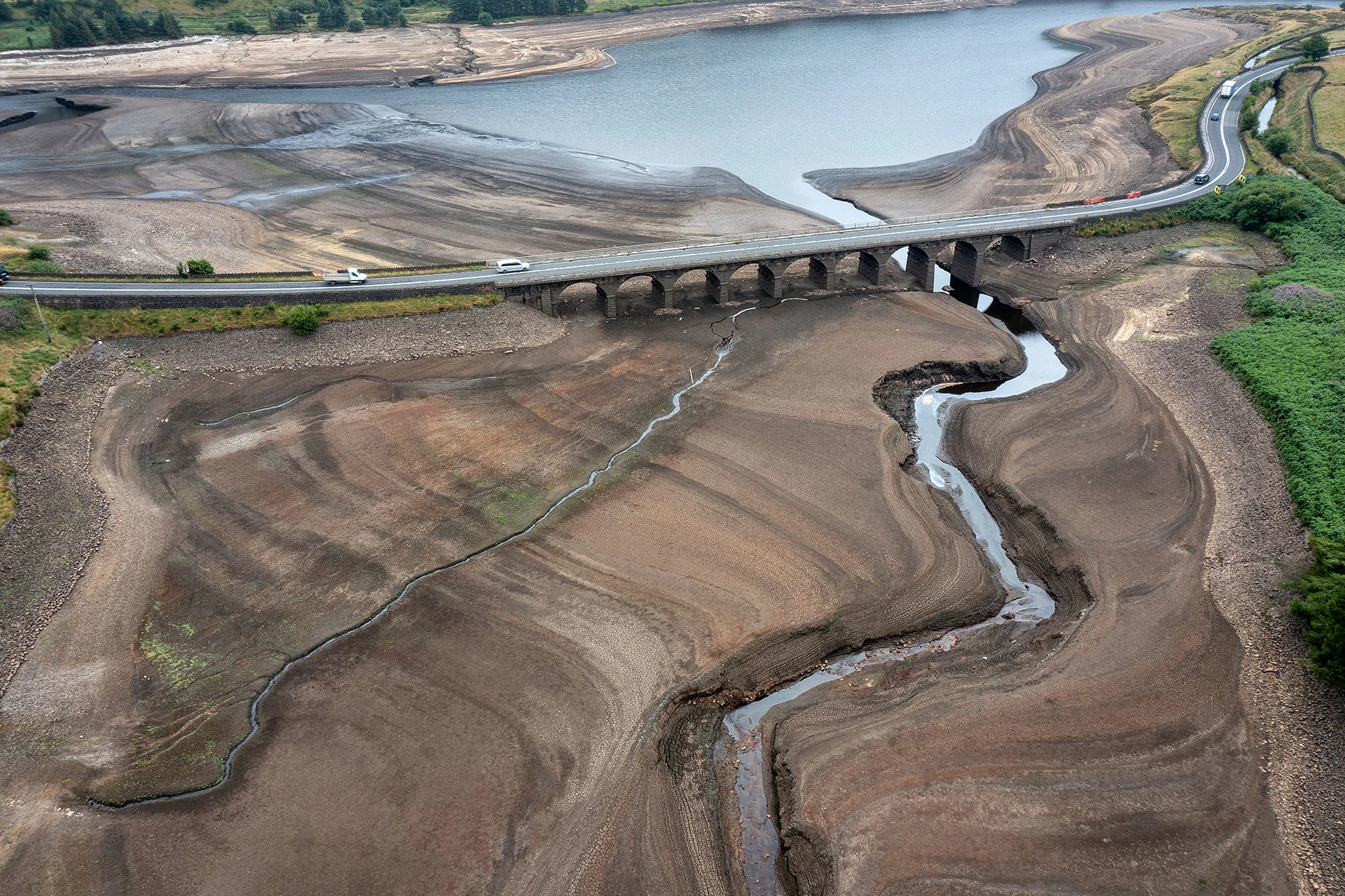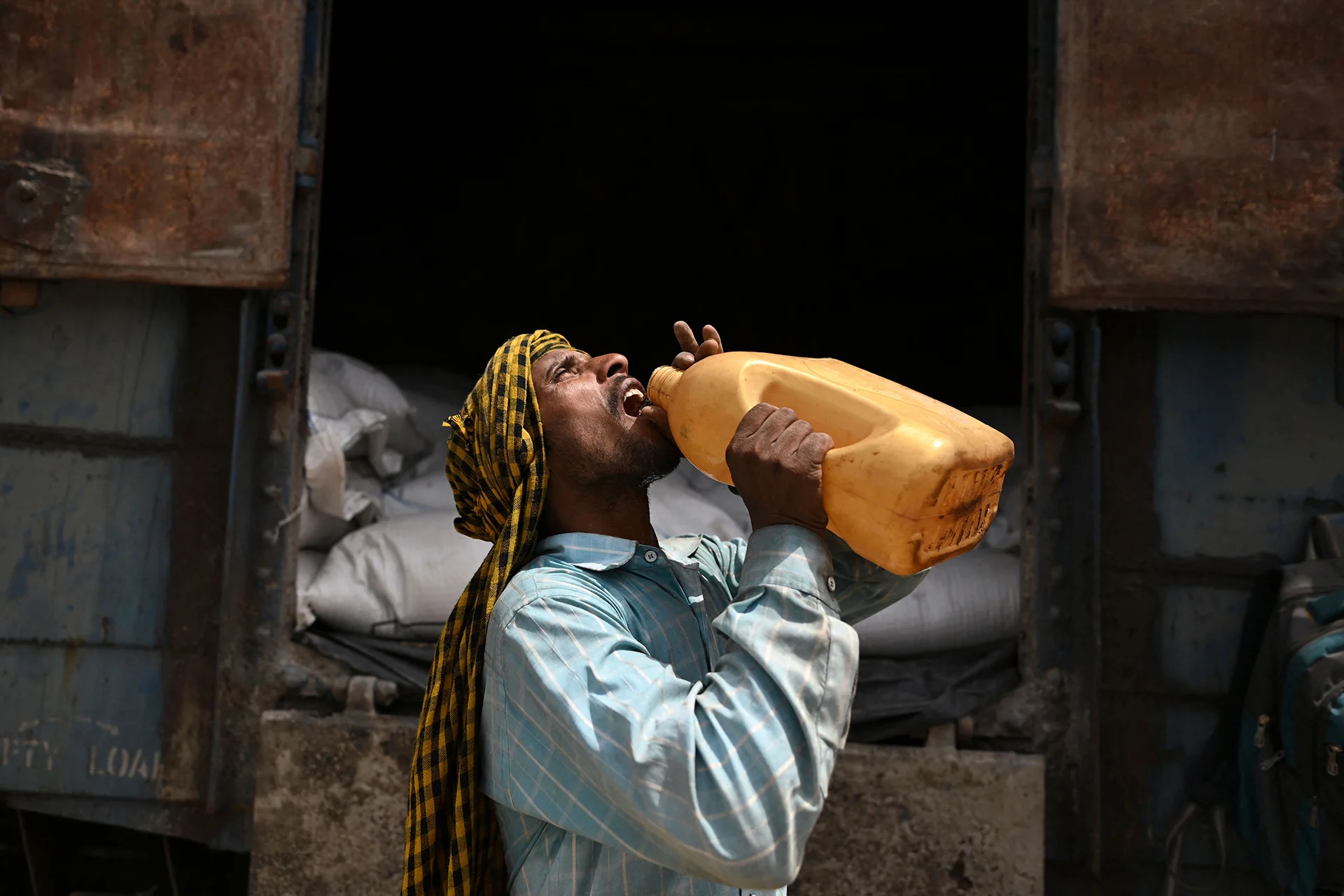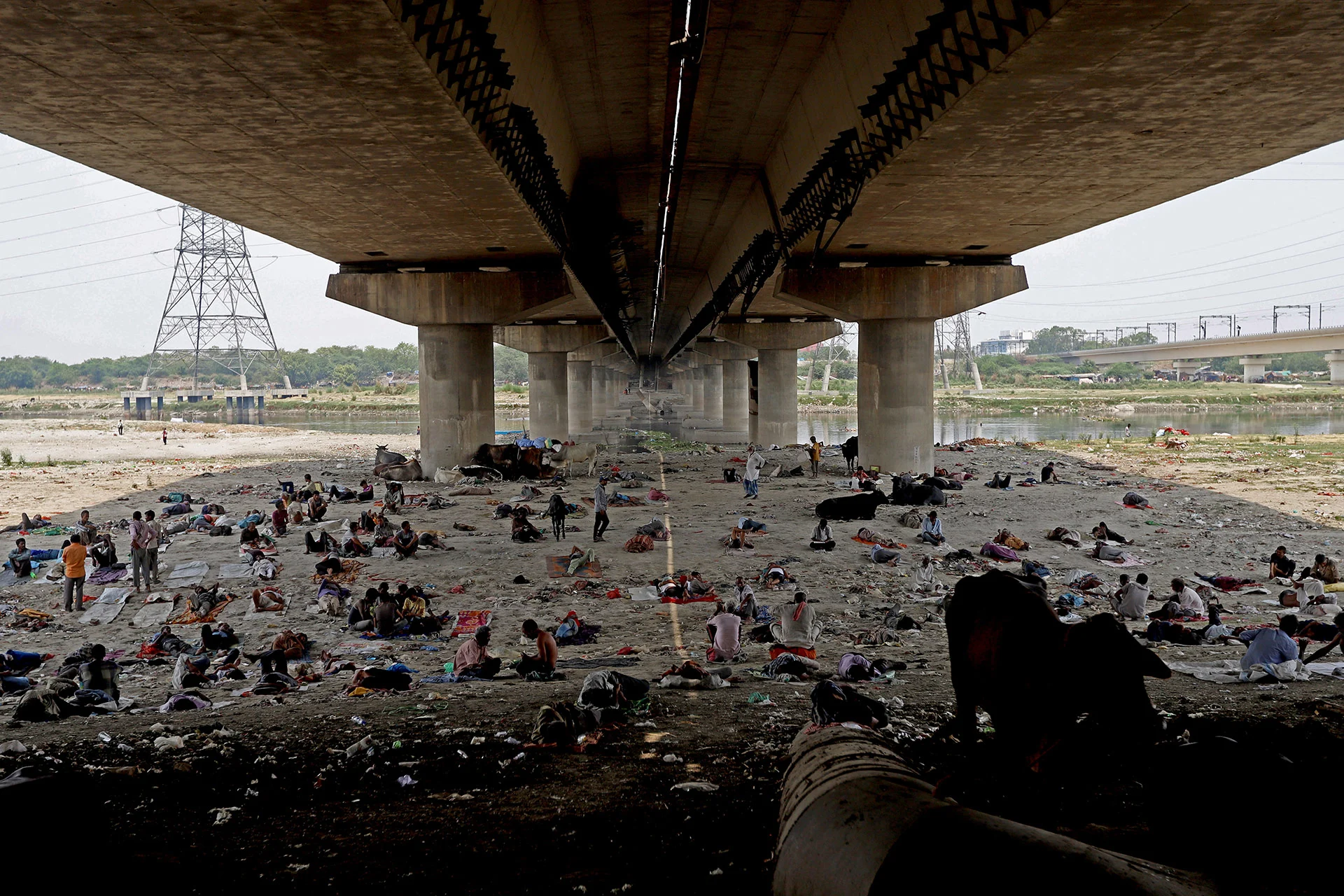
How do we know when weird weather is caused by global warming?
Much of the U.K. this summer has been impacted by a heat wave unlike any experienced in recorded history.
For the first time, since temperatures began to be kept in Medieval England, the U.K. reached a high of more than 40 C.
In nearly 50 weather stations across the U.K., local temperature records have been shattered.
This unheard-of weather event comes on the heels of the dangerous heat wave that oppressed India and Pakistan through March and April with sweltering temperatures that put human health at risk, caused water shortages, and damaged crops.
Millions were forced to suffer sauna-like temperatures rising toward 50 C for weeks on end. Close to 100 people died.

A worker drinks water during a break from loading sacks of wheat on a freight train at Chawa Pail railway station in Khanna, Punjab state, India on May 19, 2022. The world's second-largest producer of wheat announced on May 14 it would ban exports without special authorization from the government in the face of falling production caused primarily by an extreme heat wave. (Sajjad Hussain/ AFP/ Getty Images)
The rarity and extremity of these heat waves has climate analysts studying whether such phenomena can be definitively linked to climate change.
Studies into the link between weather events and climate change — known by the term “attribution” — constitute a burgeoning science.
“What weather attribution sciences are trying to do is basically calculate how much climate change made a difference in that one event,” Rodrigo Bombardi, director of climate science at Weather Source, told The Weather Network.
Since the early 2000s, scientists in the field of “extreme event attribution” have been tracking the connection between human activities and the rise in extreme weather events. For the last few years, they have begun to confirm the link between climate change and extreme weather events, like extreme temperatures, droughts, or precipitation.
A new report from Carbon Brief has analyzed over 400 peer-reviewed extreme event attribution studies on weather events ranging from typhoons to wildfires. The result is “mounting evidence that human activity is raising the risk of some types of extreme weather, especially those linked to heat.”
The analysis found that of the 504 extreme weather events studied, 71 per cent were determined to have been made more likely or more severe by climate change. Of the 152 heat events considered, climate change increased the likelihood or severity of 93 per cent of them.
Twelve separate extreme weather events were considered impossible without the changes humans have made to the global climate.

People take rest under a bridge at the Yamuna River bed on a hot summer day in New Delhi, India, on May 10, 2022. (Amarjeet Kumar Singh/ Anadolu Agency/ Getty Images)
The heat waves in the U.K. and India and Pakistan constitute such extreme events.
According to Chris Scott, head of meteorology at The Weather Network, “When we talk about heat waves, it is easy to make the link [to climate change]. The magnitude of the event, how bad it is, and the frequency, we can say that climate change is making those events more likely.”
The research organization World Weather Attribution (WWA), using peer-reviewed analysis, found that the U.K. reaching temperatures of 40 C would have been “extremely unlikely” without human-caused climate change.
Two other studies determined that the Indian heat wave’s link to climate change is definitive.
The first study, by WWA, combined the observations assembled from 20 climate models to determine that “human-caused climate change made this heat wave hotter and more likely.”
“The probability of an event such as that in 2022 has increased by a factor of about 30,” according to the study. “The same event would have been about 1 C cooler in a pre-industrial climate.”
Another study, produced by the Met Office, found that climate change increased the likelihood of such an event by a factor of 100.

A family enjoys a barbecue and cool off in a paddling pool outside their home on July 19, 2022, in Leeds, U.K. Temperatures exceeded 40 C in parts of England this day after the Met Office issued its first red extreme heat warning. Record-breaking temperatures were reached across the U.K. (Christopher Furlong/ Getty Images)
Heat waves such as the event experienced in India and Pakistan recurred about once every 300 years, according to the analysis; but in a global heating environment they can now be expected every three years.
“What happens is that climate change adds a little bit on top of that event,” Bombardi said. “You can think about climate change as a very slow wave moving by, in timescales that are longer than human life. And the weather is the high frequency that is on top of that slow wave.”
With such destructive weather becoming the new norm, analysts have continued to see records broken over the past several years, with various all time highs recorded in the U.K., India, and Pakistan amid these latest heat waves.
Where research finds a link with climate change, these records will continue to be broken. The analysis by WWA determined that “heat waves like this will become even more common and hotter.”
The Met Office study found that, by the end of the century, such high heat phenomena will be a yearly occurrence.
“I think we can use [attribution sciences] as a tool,” Scott said. “When we can look at specific events that tie in to how we are influencing the atmosphere, then I think that's a positive for us understanding the impact we have.”
“The one clear signal we can talk about,” he added, “is that we're more exposed and more vulnerable than we've ever been.”
Thumbnail image: In this aerial view the bed of the Woodhead reservoir can be seen as Summer water levels become reduced on July 21, 2022, in Glossop, England. Recent high demand for drinking water, record temperatures, and reduced rainfall has seen some reservoirs in England at only 62% capacity. (Christopher Furlong/ Getty Images)






